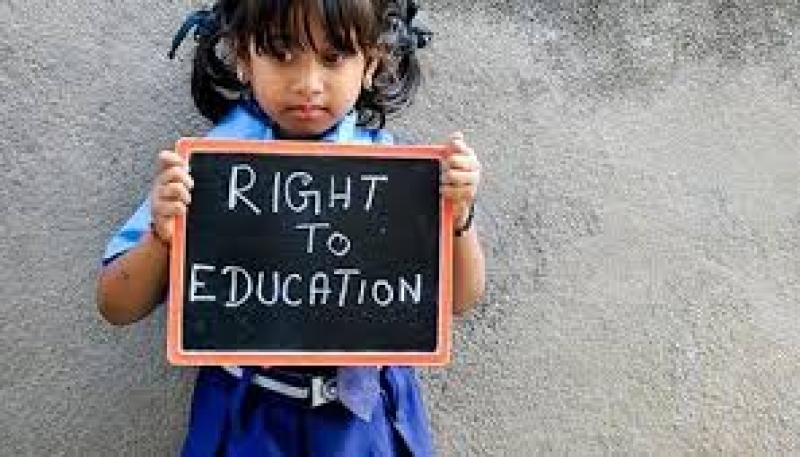- Nation Votes Tomorrow in 13th Poll, Referendum |
- Key in your hands, use it wisely: Prof Yunus tells voters |
- Yunus Urges Voters to Shape a ‘New Bangladesh’ |
- Bangladesh Polls: Campaign Ends as Voters Weigh Pledges |
- Bangladesh Heads to First Gen Z-Driven Competitive Poll |
Every child is entitled to an education
Understanding the dire status of education of slum children in Bangladesh

This is where many of our future generations live -- the slums, locally known as “bosti.” Slums are overcrowded and resource-constrained areas found all across urban Bangladesh. The slum dwellers live in this densely-packed housing area, deprived of perhaps every citizenship right throughout their lifetime. The slum children are an integral part of this unfortunate scenario.
In Bangladesh, more than half of the slum dwellers are children consisting of nearly 15 million. They are deprived of basic necessities of life and they face health issues daily due to extremely unclean and unhealthy surroundings, malnutrition, and lack of timely medical care. Unfortunately, poverty often prevents their parents from prioritizing their education, and many aren't aware of its importance; consequently, many parents pressure their children to start earning money for the family's survival at a young age.
Many don't realize that educating slum children is crucial to breaking poverty cycles, enhancing their lives, and opening doors to a better future. Isn't it time for our collective conscience to question whether denying slum children their basic rights including their right to education jeopardizes any true progress and development in Bangladesh? Ensuring every child receives essential needs in childhood regardless of their background is paramount, as they represent the future and will eventually lead the nation.
Article 17(A) of the constitution of Bangladesh guarantees free and compulsory education for all children. Article 21(A) of the Indian constitution the Indian government incorporated the right to education as a fundamental right of the citizens in the year 2002. In Article 36 of the constitution of Maldives, the right to education is a fundamental right of the citizens of Maldives, whereas the state shall freely provide primary and secondary education for all children. According to Article 17 of the interim constitution of Nepal, the right to education was incorporated as a fundamental right for all up to the secondary level in 2007.
Looking at the constitutions of India, Maldives, and Nepal, it's clear they recognize education as a fundamental right. This raises the question: Why hasn't Bangladesh revised its constitution to reflect this? What barriers stand in the way, if any?
Many don't realize that educating slum children is crucial to breaking poverty cycles, enhancing their lives, and opening doors to a better future.
According to a study by icddrb on slum children aged between 6-14 years, about 14.1% of boys and 8.9% of girls do not have any schooling background at all. Additionally, in a documentary by Al Jazeera English on December 2, 2019, in Bangladesh, one in six slum children between the ages of six and 14 drop out of school for full-time work.
The current situation highlights a concerning trend of slum children increasingly disconnecting from education in significant numbers. Instead, they are drawn into various risky activities that could have lasting detrimental effects on their lives. Unfortunately, there appears to be a lack of concern or attention to address this issue.
The challenges facing slum children's education in Bangladesh are multifaceted. Poverty often restricts families from affording school-related expenses, while limited access to schools in slum areas further impedes attendance. Even when schools are available, they may lack adequate resources and qualified teachers, affecting the quality of education.
Social and cultural factors, including child labour, early marriage, and gender biases, also play a role in limiting educational opportunities. Moreover, health and hygiene challenges also contribute to absenteeism and poor learning outcomes. Addressing these issues necessitates comprehensive efforts to improve access to quality education, tackle socio-economic disparities, engage communities, and implement policies that prioritize the educational needs of slum children.
To ensure the removal of challenges hindering slum children's education in Bangladesh, concerted efforts are needed. This includes building more schools in slum areas and providing transportation options, enhancing the quality of education through resource provision and teacher training, implementing targeted poverty alleviation programs, challenging social and cultural barriers through awareness campaigns, improving health and hygiene facilities, and fostering community engagement in decision-making processes.
Indeed, every child should be raised in a conducive environment with access to their fundamental needs and ample opportunities to contribute positively to society. This entails ensuring a nurturing atmosphere, meeting their basic requirements, and providing them with equal chances to thrive and make meaningful contributions to their communities.
Stakeholders must remain concerned about every child, recognizing them as assets to the country. To harness their inner productivity, talent, and innovation, it's imperative for the government, in collaboration with NGOs and INGOs, to step up efforts to address their conditions more effectively.
Md Istiaque Ahmed Kafi is a freelance contributor and a student of public administration.

